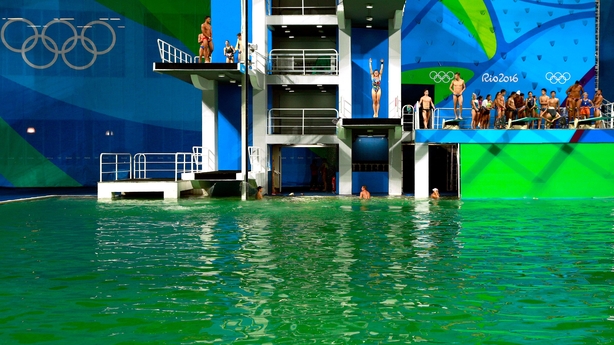Before the start of these Rio de Janeiro Games the general consensus was that this was the wrong city to host the Olympics, writes Peter Sweeney.
Fears over the Zika virus, delays to major infrastructure projects - including venues - sky-high crime rates, slow ticket sales, lengthy commutes between sites, suspect water quality, corrupt administration, political unrest… And those were just some of the headline concerns.
"The competition has been excellent, the atmosphere is positive and though the infrastructure has creaked it hasn’t so far broken down"
We’re now exactly halfway through - Saturday is day eight of 16 - so we’re in a better position to judge how well Rio was equipped to host these games and how this sprawling city, the first in South America to be awarded an Olympics, is coping.
So let’s go through the list.
Zika remains a legitimate concern to many, including pregnant women and those planning to start a family in the short-term, but Rio has thankfully been largely mosquito free and that can be put down to the fact that it’s a southern hemisphere winter.
There was a serious rush on to get venues completed and they were all ready on time, even if seats were being bolted in almost until the moment paying customers shuffled through security.
Crime is a worry in a city as deeply divided as Rio, though the beefed-up security presence around venues and tourist sites has papered over this particular crack until after the Games are over.
Ticket sales have been awful, with locals priced out of the market. They’re being asked to pay 40 Brazilian Real for the cheapest tickets. That’s roughly a tenner in Ireland, but in Rio that’s a huge chunk of a local’s weekly salary - and that’s for the people who are working. The most expensive tickets for the athletics finals are 1,200 Real and only for the elite.
The commutes between venues are monstrous and it’s not uncommon to have to spend three or four hours daily shuttling between events at far-flung places linked by traffic-clogged roads. But this is more a problem for media, rather than athletes or spectators.
The water quality and standard of governance in Rio remains poor, but despite this civil unrest has been muted - not like in the build-up to the 2014 World Cup in this country.
Security concerns for the Games have so far been unfounded. The bullet fired at the equestrian centre came from the nearby army barracks, not terrorists, vandals or robbers, and the attack which broke windows on a media bus was caused by a stone rather than a gun.
There have been other issues too, of course, like the diving pool turning green with no explanation.

The queues too have been interminable, to shuffle through security, to get into venues, to buy food, and the policy at the gates is infuriating - some events you can bring in water, others you can’t, some practically perform full body searches, others you’re almost waved through.
The locals haven’t gotten behind these Games in the way that happens in other cities, notably in London four years ago. Most bars have two televisions - one showing the Olympics and the other showing a domestic football match.
People are as likely to watch one as the other and there’s precious little sign of civic pride at being the hosts - banners, flags and all the rest of it - around town. The weather hasn’t been kind either, with high winds and occasional rain causing delays to some sports, though no city can guarantee 16-straight days of sunshine.
But overall these Games have been good. The competition has been excellent, the atmosphere is positive and though the infrastructure has creaked it hasn’t so far broken down.
The real problem with this, as with almost any other Olympics, is the legacy it will leave behind.
It’s reckoned that Barcelona in 1993 was the last host to benefit from any sort of urban regeneration after playing host. The ordinary people of Rio certainly aren’t in line to derive any benefits.
What will remain will be a chaotic and deeply divided city with all of the same problems as before. On top of that they will have a huge public debt run up in the lead-in to these games, and a string of white elephant sporting venues, many of them miles from anyone who might be interested in using them.
The Olympic Park is in an exclusive, new part of town that the poor people - Favelados - can’t get to and would be chased out, or worse, were they found there.
The regular people of Rio accept their lot with surprisingly good humour in so many cases, and it might help that their city is one of the most beautiful in the world and their weather is generally kind.
Most seem happy to host the games, but most will be happy to see the five ring circus move on too.



